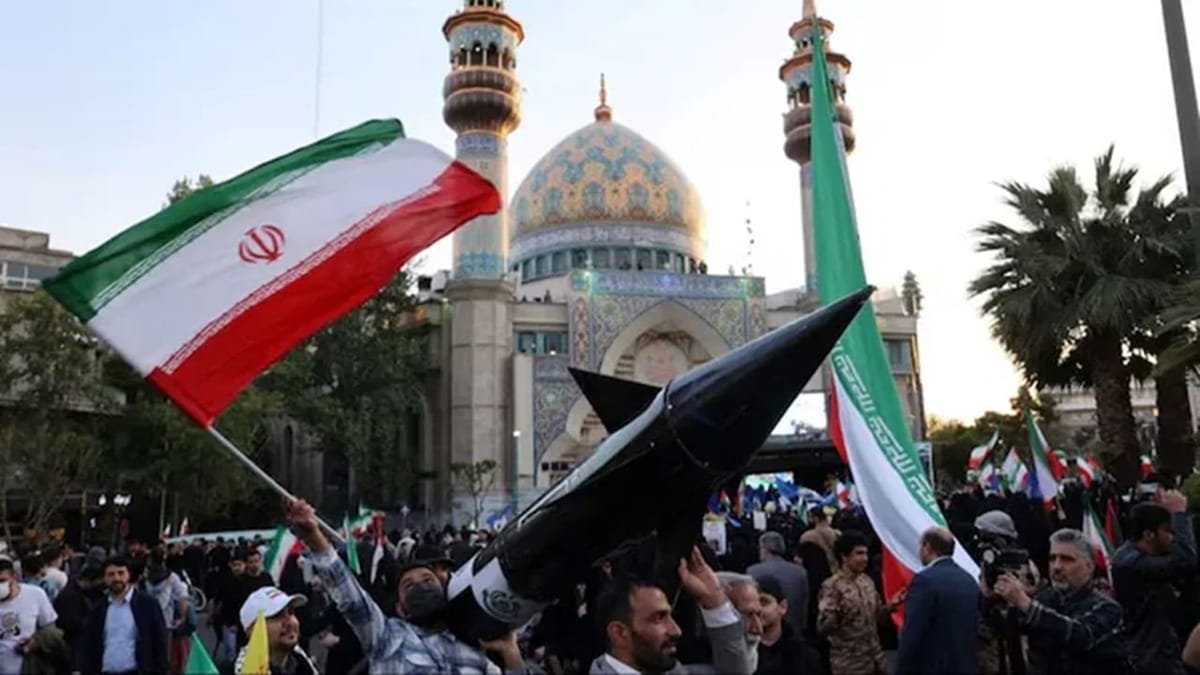Israel planned broad counter-attack on Iran but opted for 'limited strike' to avoid risk of escalation

Source: News9live
Author: Siddhi Gaharwar
New Delhi: Israel had decided to give a broad and befitting response to Iran's unprecedented drone and missile attack on April 13 but it later dropped the plan due to mounting international pressure and repeated calls for restraint and de-escalation of tensions. While many foreign allies of Israel cautioned it against launching counter-attack against Iran, the US made it clear that it will not participate in any counter-strike even though the Biden administration vowed 'ironclad' support to the country.
Iran had on April 13 night fired more than 300 drones, ballistic and cruise missile on Israel, in response to an alleged Israeli attack on an Iranian consulate in Syria on April 1 that killed many, including two top general of Iran's Revolutionary Guards. The drone and missile strike was Iran's first-ever direct military attack on Israel, despite decades of enmity between the two countries. Israel, however, said that attack caused "minor damage" and that 99 per cent of the weapons fired by Iran were shot down.
Following the attack, Israeli military said that the Iran's drone and missile strike will be met with a response. Israeli Prime Minister Benjamin Netanyahu's war cabinet also went into hectic parleys to weigh a response to Iran's weekend attack, even as the allies who helped foil the strike call for caution. However, Israel gave up its plan to carry out a much more "extensive counter-strike" on Iran after diplomatic pressure from the Unites States and other foreign allies, New York Times reported, quoting three senior Israeli officials.
The officials, on a condition of anonymity, claimed that Israeli leaders initially discussed bombarding several military targets across Iran last week including near Tehran, the Iranian capital. However, Israel opted for a "limited strike" on Friday after US President Joe Biden as well as British an Germany foreign minister urged Israel PM to avoid a wider war that can potentially push the Middle East to the brink a mjor regional conflict.
On Friday, Israel fired a small number of missile from aircraft deployed several hundreds miles west of it. The country also launched small attack drones, known as quadcopters, to confuse Iranian air defense, according to the Israeli officials.
Even before Iran launched drone and missile attack on April 13, Israel's military and political leaders started discussing a counter-strike, anticipating a strike in response to the April 1 attack. According to one official, Israeli military also presented a counter-attack plan to the war cabinet on April 12. Israel's intentions, however, changed after the Iran attack, which was even bigger than expected, according to the three Israeli officials,
During an early-morning phone call between Netanyahu and Biden, the US President urged the Israeli PM to consider the successful defense as a victory that required no further response, the officials said. But the Israeli government continued to give signals to foreign allies that it will not give up its counter-atttack plan.
The Netanyahu government, however, abandoned the plan for a broad counter-attack that might draw significant response form Iran, and finally stelled on a plan with an aim to make a point to Iranina officials without publicly humiliating them, the Israeli officials said. After Israel finally carried out its attack early on Friday morning, Iranian officials did exactly that -- dismissing their impact. Iran also largely avoided blaming Israel for the assault.
